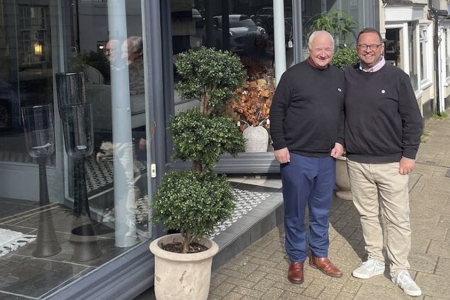What does it take to be a furniture buyer? In this new regular feature, Furniture News explores the psychology and methodology of buying, and the attitudes and mindsets behind it, with insights from some of the industry’s top professionals. Here, Sue Skinner, product and buying director at Sussex Beds – the family business she joined in 1995, occupying the buyer role since 2015 – offers her take …
How did you become a buyer?
I originally worked on the shop floor in sales, and loved talking to customers and understanding their needs and how a customer buys. I then worked my way up to buying by doing various other roles, but this role suited my strengths, and I love it!
What are the key qualities the role demands?
Products that sell are one of the most important things. However, we must ensure that the suppliers are supportive and that each product is of a quality that we are confident in selling. We must also have a strategy and plan of direction for the different product areas.
How do you keep on top of sales/demand trends?
Our new IT system gives us endless opportunities for different numbers, which is so valuable to help keep up with demand and trends within our business. Also, visiting trade shows and contacting current and new suppliers to learn about new things coming through – and looking at our competitors, magazines and things like Pinterest and other social media also offer insight into the latest trends.
Outline a typical day’s work …
Looking at my KPIs (product performance and product issues), and making sure our team in both sales and distribution are happy with the products we are selling.
How has buying changed since you started out?
It used to be mainly ordering bulk stock, but now most items within the company are made to order. Because of this, there’s a lot more planning and strategy behind each product.
What was your most successful purchase?
For our business model, it would be white label/own branding. This has been so successful for us.
… and your biggest flop?
Taking a gamble with suppliers that have not supported us and made promises that they have not followed through on. It was a big investment, and sadly, we have been let down.
How much do personal feelings influence your decisions?
Staying professional is important, and I must not let my emotions and personal feelings influence my decisions. It’s very hard though – I have to listen to the team and get views from others, they’re on the shop floor and hear what our customers are looking for.
We have a product committee, which is a group of our sales team that helps gather information to help with this.
How do you balance working with existing partners and new opportunities?
We love looking at any new opportunities or new directions. It’s important to keep an eye on what’s happening in our industry. However, it’s also important to work with and support our existing partners. We look at them as if they are part of our team and family. Saying that, it is disappointing when you don’t feel that reciprocated, and that can lead to difficult conversations, but it is necessary for us to move forward.
What’s the most satisfying part of the job?
I love seeing new products on sale and hearing feedback from the team that they love the new products. It’s a great feeling!
What’s the biggest misconception people have about furniture buyers?
Furniture buyers must understand market trends, customer behaviour, pricing strategies, and logistics. They’re tracking what’s selling, what isn’t, and why.
What would you say to anyone considering a career in buying?
You get to meet lots of interesting people from all different backgrounds, and you get to visit some great places in the UK and abroad.
This article was published in May's Furniture News.















